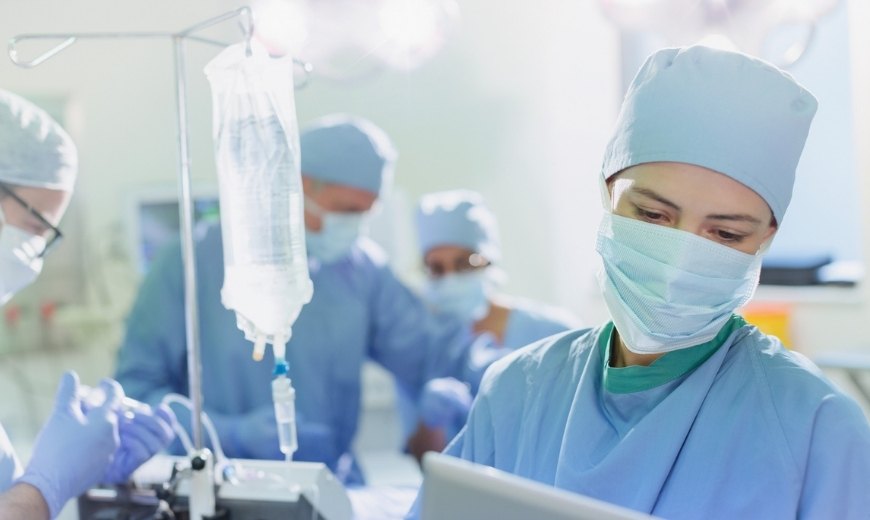SARS-CoV-2 antibodies and symptoms in an Irish Healthcare Worker
Abstract:
Objectives This study examined the natural history, including incidence and prevalence, of SARS-CoV-2 antibodies serially up to 6 months post infection in Irish Healthcare Workers (HCWs) at an academic tertiary maternity hospital, during the first pandemic peak from March to September 2020.
Design:
This single centre observational study profiled SARS-CoV-2 incidence and infection using viral RNA detected using oro/nasopharyngeal swabs accompanied by serological assessment of study participants for the presence of S SARS-CoV-2 antibodies. Participant demographics were also collected alongside information on clinical symptoms and time to recovery. Real time polymerase-chain-reaction (RT-PCR) for viral RNA SARS-CoV-2 detection was performed using the Allplex™ SARS-CoV-2 three gene target 2019-nCoV assay (SeeGene Inc., Rep. of Korea) or the Xpert Xpress SARS-CoV-2 assay on the GeneXpert platform (Cepheid, USA). Blood samples were obtained at the time of initial swab and at up to 4 time points thereafter, for the serological assessment of antibodies against both the spike and nucleocapsid protein antigens of SARS-CoV-2. Serological response was measured using the Captia™ Anti-SARS-CoV-2 (IgG) ELISA (Trinity Biotech) as part of a clinical performance evaluation. Two other testing methods were also used; the Anti-SARS-CoV-2 ELISA (IgG) assay (EuroImmun) and the Abbott Anti-SARS-CoV-2 IgG 75 kit on the Architect™ i2000SR instrument (Abbott Laboratories).
Setting:
Academic Tertiary Maternity Hospital in Dublin, Ireland.
Participants:
We invited symptomatic and asymptomatic healthcare workers employed at the Rotunda Maternity Hospital to participate in the CAST study.
Main Outcome Measures:
The CAST study aimed to examine incidence and clinical symptoms of SARS-CoV-2 in HCWs and to determine the presence and longevity of antibodies in this group. We also sought to examine the clinical utility of the Captia™ Anti-SARS-CoV-2 (IgG) ELISA (Trinity Biotech) and to compare it to the current “accepted” gold standard platform in Ireland.
Results:
By July 2020, 398 molecular tests had been completed on symptomatic staff with clinical suspicion of SARS-CoV-2 infection. In this cohort, 14% (n=54/398) had SARS-CoV-2 RNA detected by RT-PCR. The CAST study enrolled 137 HCWs with 86 participants symptomatic at time of swab collection and a further 51 asymptomatic control participants. SARS-CoV-2 RNA was detected in 52% (n=45/86) symptomatic study participants and serological positivity was confirmed in 98% (n=44/45) of those participants. Asymptomatic SARS-CoV-2 RNA infection was detected in 4% (n=2/51) of control participants with a seropositivity rate in this group of 8% (n=4/51). We demonstrated that 95% of SARS-CoV-2 PCR positive participants have detectable levels of antibodies at 100 days post infection, which persisted in 91% of participants at day 160+. Ongoing symptoms up to six months post infection were present in 50% of study participants with positive PCR and serology results. These data will be important to consider for long-term workforce planning in a healthcare setting, as the ongoing pandemic continues.
Funding The CAST study was supported by the Rotunda Hospital and Trinity Biotech.
Competing Interest Statement:
Trinity Biotech funded the cost of diagnostic testing and the Rotunda Hospital funded sample and data collection.
Clinical Trial:
Observational study of SARS-CoV2 diagnostic results, presenting symptoms and ongoing disease in HCW
Funding Statement:
The CAST study was funded by the Rotunda Hospital and Trinity Biotech
https://www.medrxiv.org/content/10.1101/2021.02.10.20248323v1









